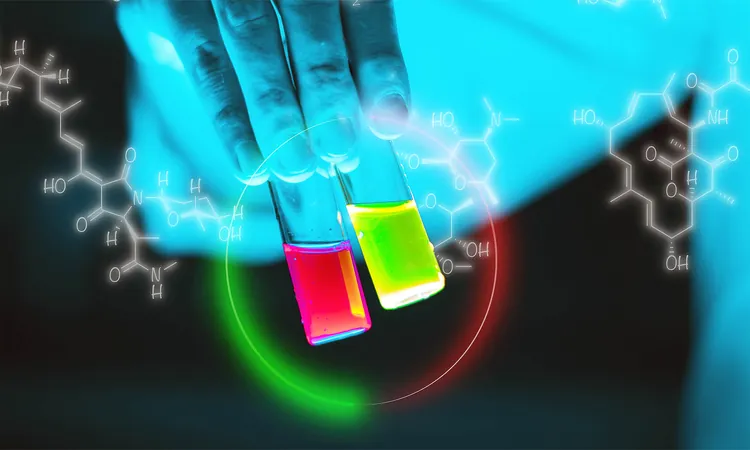
Unlocking Longevity: How One Protein Could Revolutionize Aging
2025-05-10
Author: Jia
As we age, the inevitable decline in stamina, strength, and mental acuity becomes a growing concern. Fortunately, a team of international scientists is on a revolutionary mission to extend not only our lifespan but also our overall quality of life.
Introducing Klotho: The Super Protein
At the forefront of this groundbreaking research is the protein Klotho, specifically its secreted form, known as s-KL. Initial studies hint at its ability to play a crucial role in regulating inflammation and cellular aging, sparking hope for its therapeutic potential.
First recognized in the late 1990s, Klotho's presence in scientific literature arose from experiments showing that mice deficient in this protein aged prematurely, resembling older, frailer counterparts. Professor Miguel Chillón from the Institute of Neurosciences in Barcelona has been a key player in exploring Klotho's wide-ranging benefits.
Gender Matters: The Different Effects of s-KL
Notably, research illustrates that the impact of s-KL varies between male and female mice. While males exhibited marked improvements in lifespan and muscle strength, females showed more pronounced benefits in bone structure when treated earlier. These disparities underscore the need for gender-specific strategies in future human trials.
Transforming Aging: The Power of s-KL
The findings reveal that mice enriched with s-KL experienced better muscle composition and faster recovery in coordination and endurance tasks. Importantly, s-KL also appeared to protect against age-related bone deterioration, which is crucial for preventing fractures in older adults.
Timing is Everything: When to Start Treatment?
Exciting observations arose when s-KL was administered to mice at 12 months of age, showing greater longevity and health benefits compared to those treated at six months. This hints that mid-life could be an optimal window for intervention, positioning s-KL therapy as potentially transformative for humans.
Boosting Brain Health: The Cognitive Benefits
Beyond physical enhancements, the study explored the effects of s-KL on the brain, specifically the hippocampus—the epicenter of memory. Researchers observed increased neurogenesis, indicating enhanced cognitive function, and improvements in immune response within the brain, which may help mitigate inflammation associated with age-related diseases.
The Future is Bright: s-KL's Potential in Human Aging
While this research was conducted on mice, the implications for human therapies are tantalizing. By addressing age-related decline in mobility, memory, and bone strength holistically, s-KL could fundamentally alter aging treatments.
Most existing medications tackle one specific problem at a time, such as osteoporosis or cognitive decline. In contrast, s-KL's wide-ranging effects could pave the way for a new paradigm in how we address aging.
Looking Ahead: The Next Steps in s-KL Research
The potential for s-KL to improve the quality of life for aging populations is immense. Researchers are exploring optimal delivery methods—whether through direct protein administration or refined gene therapies—while continuing to delve into how s-KL interacts within various biological pathways.
As this promising study published in Molecular Therapy gains traction, we stand on the brink of unlocking new avenues for healthy aging—reinventing what it means to grow older.




 Brasil (PT)
Brasil (PT)
 Canada (EN)
Canada (EN)
 Chile (ES)
Chile (ES)
 Česko (CS)
Česko (CS)
 대한민국 (KO)
대한민국 (KO)
 España (ES)
España (ES)
 France (FR)
France (FR)
 Hong Kong (EN)
Hong Kong (EN)
 Italia (IT)
Italia (IT)
 日本 (JA)
日本 (JA)
 Magyarország (HU)
Magyarország (HU)
 Norge (NO)
Norge (NO)
 Polska (PL)
Polska (PL)
 Schweiz (DE)
Schweiz (DE)
 Singapore (EN)
Singapore (EN)
 Sverige (SV)
Sverige (SV)
 Suomi (FI)
Suomi (FI)
 Türkiye (TR)
Türkiye (TR)
 الإمارات العربية المتحدة (AR)
الإمارات العربية المتحدة (AR)